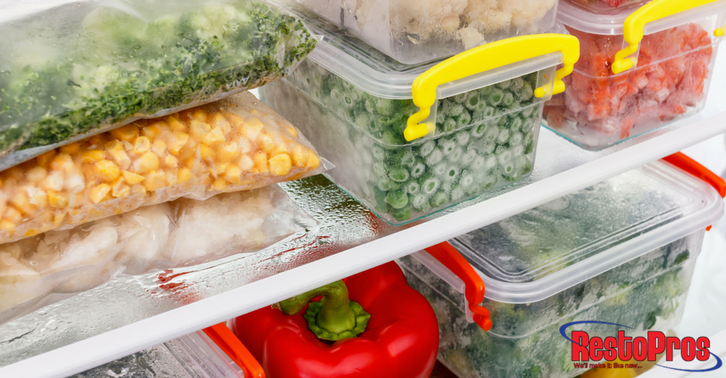 No food lasts forever, not even that one you’re thinking of. It’s a shame that we don’t have meals with eternal shelf-lives but we can prolong the ones that they do have. While refrigeration and airtight packaging have improved the sell-by-dates of many products, there are simple things you can do to improve just how long your food lasts. Leftovers are an important part of any family dynamic, but when they sit for too long they, like any overly humid part of your home, can start to develop mold and rot.
No food lasts forever, not even that one you’re thinking of. It’s a shame that we don’t have meals with eternal shelf-lives but we can prolong the ones that they do have. While refrigeration and airtight packaging have improved the sell-by-dates of many products, there are simple things you can do to improve just how long your food lasts. Leftovers are an important part of any family dynamic, but when they sit for too long they, like any overly humid part of your home, can start to develop mold and rot.
Food spoils when bacteria and mold begin to grow in or on it. This process of rotting and spoiling is both gross (because of mold and bacteria) and hazardous (due to the byproducts of both these things). Food poisoning and foodborne illnesses are more common than you might think, with the CDC estimating that roughly 1 in 6 Americans get sick from foodborne illnesses each year.
Refrigeration
Most of the time when we talk about mold we recommend keeping things cool, ventilated, and dry. Cool and dry is ideal for most of the food you store as well. Desiccants are necessary to help keep powders such as flour or baking soda from clumping together when stored while the cold storage of a fridge or freezer helps to stall or stop the buildup of mold and bacteria in food.
Both bacteria and mold are living organisms. They require certain conditions to thrive and aren’t as adapted to cold environments. Chilling or freezing an area reduces the ability for spores and bacteria to propagate. For one thing, the cold temperature is not a sustainable environment while frozen water is not suitable for bacteria to breed in. You should store most foods in your refrigerator when they aren’t being consumed. Even all-day events and parties shouldn’t leave items such as cheese, meat, or vegetables out for more than 30 minutes to an hour.
Foods that shouldn’t be refrigerated but should be eaten within a few days of purchase are:
- Melons
- Potatoes
- Tomatoes
- Onions
- Bread
- Apples
- Avocados
Bear in mind that not refrigerating these items reduces their shelf-life but improves their flavor. Always inspect food before cooking with it. To store them for the long-term, freezing is the best option.
Sealed Containers
Another way to protect your food from spoiling is to make sure that it stays in a sealed container. Without a replenished supply of air, many of the oxygen-dependent molds and bacteria are not able to thrive. Sealed containers, prevent food from drying out while keeping them guarded against additional contaminants carried through the air or on dust particles.
Salting and Preservation
This isn’t used as often in homes but it’s interesting to point out. Salted meats were an initial way to preserve meat throughout the winter. The salt itself would cure the meat, preventing bacteria and mold from setting in and rotting the meat. You’re also left with a very tasty, if salty, slice of beef.
At the end of the day, the way you protect your food is similar to how you protect your home from mold and mildew. Storing food in a cool, dry location is important for prolonging its shelf-life. Environments that are hot or humid will promote rotting faster as they improve the spread of mold and bacteria, facilitating the breakdown of food. Any food that has been sitting out for multiple hours becomes suspect, as bacteria can set in without showing symptoms early on. Stay safe, and stay healthy!
Don’t forget to follow RestoPros on Facebook, Twitter, LinkedIn, and Google+ for new Updates, News, and Discounts
